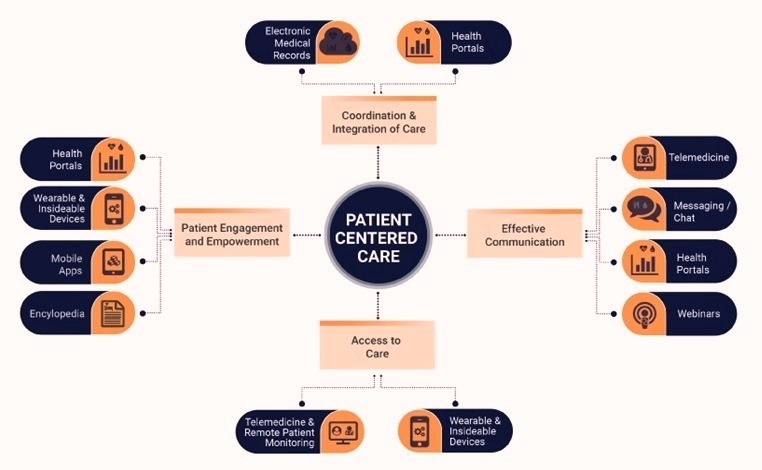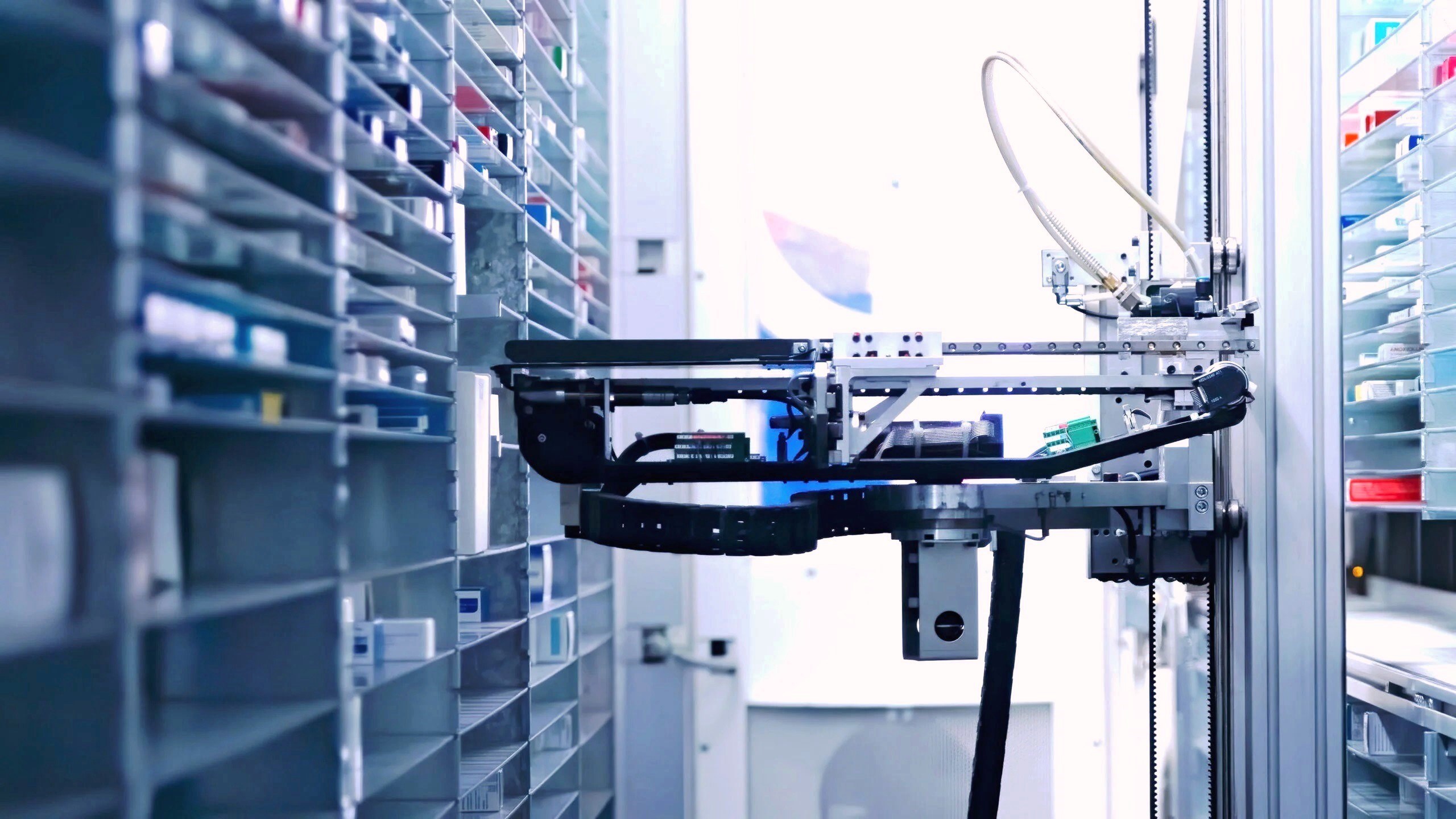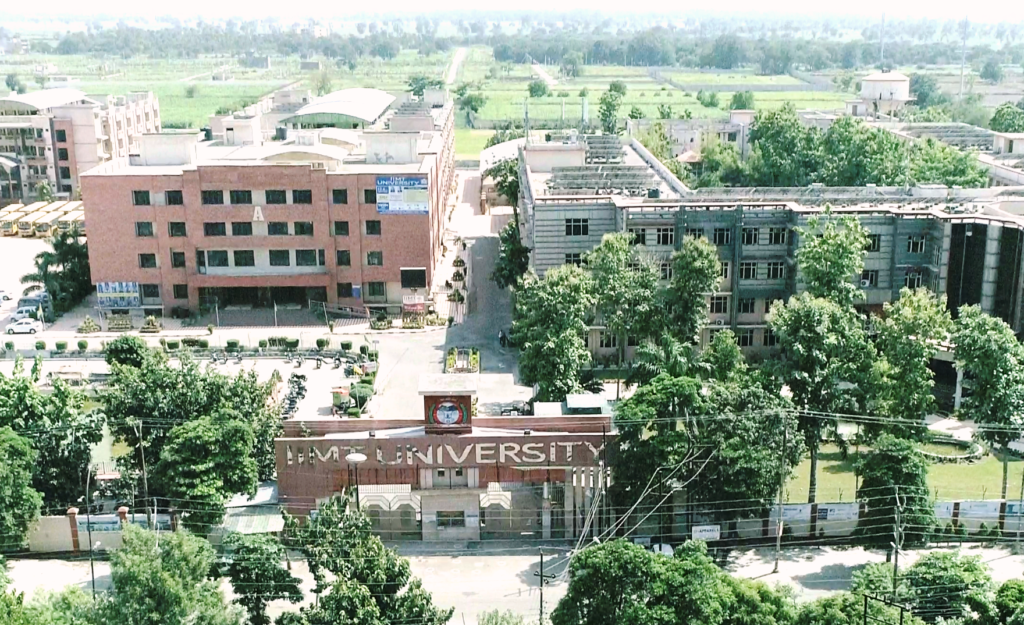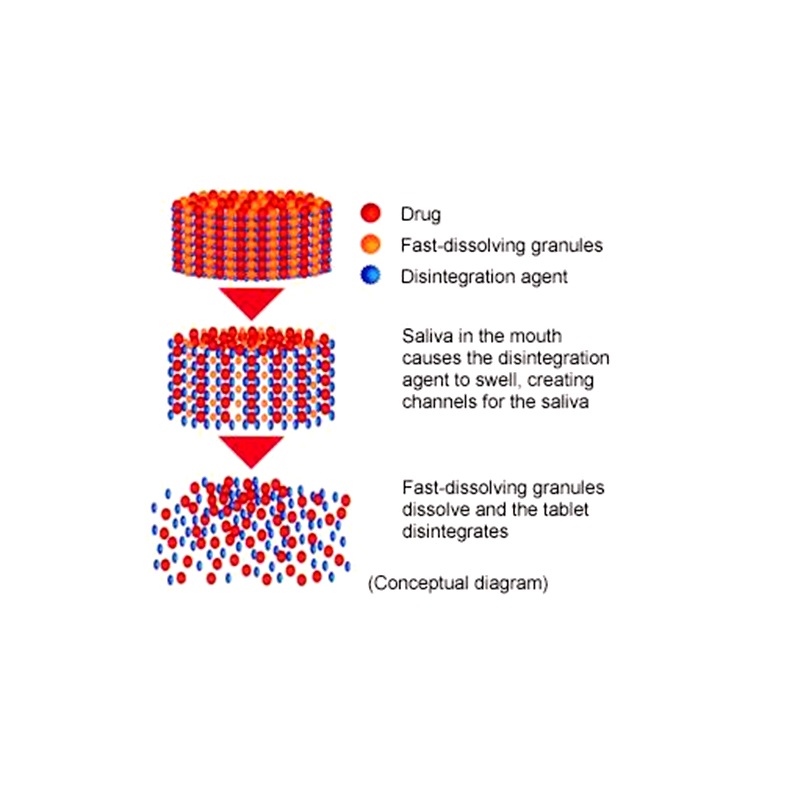In the ever-evolving landscape of healthcare, the field of pharmacy stands at the forefront of change. Technological advancements are reshaping traditional practices, and a patient-centric approach is becoming increasingly vital. In this blog post, we’ll delve into the future of pharmacy, exploring the impact of technological innovations and the importance of patient-centric care. Additionally, we’ll highlight the role of IIMT University as a pioneer in pharmacy education, recognized as the best university for pharmacy in UP.

❖ Embracing Technology in Pharmacy: A Paradigm Shift
The integration of technology in pharmacy has ushered in a new era of efficiency and precision. Automated prescription dispensing systems, electronic health records, and telepharmacy services are just a few examples of how technology is revolutionizing the traditional pharmacy setting. These innovations not only streamline processes but also reduce the likelihood of errors, ensuring that patients receive the right medications at the right time. One notable technological advancement is the use of artificial intelligence (AI) in drug discovery and development.
AI algorithms analyze vast datasets to identify potential drug candidates, significantly speeding up the research and development process. This not only accelerates the availability of new medications but also enhances their effectiveness. The integration of technology into the field of pharmacy represents a profound paradigm shift, ushering in an era of unprecedented possibilities and redefining the traditional landscape of pharmaceutical practice. As we delve deeper into this transformative journey, it becomes evident that technology is not merely a tool but a catalyst for elevated patient care and operational efficiency.

Automation, a cornerstone of this paradigm shift, streamlines routine tasks such as prescription dispensing, inventory management, and record-keeping. This not only minimizes the margin for error but also allows pharmacists to redirect their focus towards more nuanced aspects of patient care. The advent of robotic dispensing systems exemplifies this shift, where precision meets expediency, ensuring that patients receive their medications with the utmost accuracy and timeliness.
Electronic Health Records (EHRs) play a pivotal role in creating a comprehensive and interconnected healthcare ecosystem. Pharmacists armed with access to a patient’s complete medical history can make more informed decisions, mitigate adverse drug interactions, and contribute significantly to collaborative healthcare efforts. The seamless exchange of information between healthcare providers enhances coordination, resulting in a holistic approach to patient well-being.
Telepharmacy, another trailblazing aspect of this technological revolution, transcends geographical barriers and brings pharmaceutical expertise directly to the patient’s doorstep. Virtual consultations, remote monitoring, and telemedicine platforms empower pharmacists to extend their reach, providing personalized care and guidance irrespective of physical distances.
Moreover, the rise of telepharmacy has broken down geographical barriers, providing patients with remote access to pharmaceutical expertise. Virtual consultations and telemonitoring enable pharmacists to offer personalized advice and monitor patients’ medication adherence from the comfort of their homes.
❖ IIMT University: A Beacon of Excellence in Pharmacy Education
Amidst this technological revolution, institutions play a crucial role in shaping the future of pharmacy professionals. IIMT University, recognized as the best university for pharmacy in UP, stands as a testament to its commitment to excel in pharmaceutical education. IIMT University’s cutting-edge curriculum goes beyond traditional teaching, incorporating the latest advancements in pharmacology and technology. Students at IIMT University are equipped with the knowledge and skills needed to navigate the dynamic landscape of modern pharmacy practice.
❖ Patient-Centric Care: A Pillar of Modern Pharmacy
While technology plays a pivotal role, the heart of pharmacy lies in patient care. The shift towards a patient-centric approach emphasizes the importance of building meaningful relationships between pharmacists and patients. Pharmacists are no longer just dispensers of medications; they are integral members of the healthcare team, actively involved in patient education and advocacy. IIMT University recognizes the significance of instilling a patient-centric mindset in its students. The curriculum goes beyond the technical aspects of pharmacy, emphasizing communication skills, empathy, and cultural competence. This holistic approach ensures that graduates are not only proficient in pharmaceutical science but also adept at providing compassionate care.
❖ Challenges and Ethical Considerations in the Technological Era
The technological era has ushered in unprecedented advancements, accompanied by a host of challenges and ethical considerations. One major challenge is the rapid pace of innovation, which often outpaces the development of ethical frameworks to govern emerging technologies. This disconnect raises concerns about the responsible use of technologies, especially in areas like artificial intelligence, biotechnology, and surveillance. Ethical considerations also extend to issues of privacy and data security.
As technology becomes increasingly intertwined with our daily lives, the collection and utilization of personal data raise questions about consent, transparency, and the potential for misuse. The rise of surveillance technologies, such as facial recognition systems, further amplifies concerns regarding individual rights and civil liberties. Moreover, the digital divide poses a significant challenge, as not everyone has equal access to technological resources. This gap exacerbates social inequalities, limiting opportunities for those without access to essential technologies. In addressing these challenges, there is a growing need for ethical guidelines and regulations to guide the development and deployment of new technologies. Striking a balance between innovation and ethical considerations is essential to ensure that technology benefits humanity without compromising fundamental values and rights. The ongoing dialogue surrounding these issues is crucial for shaping a responsible and inclusive technological future.
1. Data Privacy and Security: Safeguarding Patient Information
One of the foremost challenges in the technological era of pharmacy is the intricate dance between harnessing patient data for personalized care and safeguarding individual privacy. The digitization of health records, while enhancing accessibility and coordination of care, introduces concerns about the security of sensitive patient information. Ensuring robust cybersecurity measures becomes imperative to protect against data breaches and unauthorized access, preserving the trust that patients place in the healthcare system.
2. Dehumanization of Patient Interactions: Striking a Balance
As technology takes center stage, there is a risk of diminishing the human touch in patient-pharmacist interactions. Automated systems and artificial intelligence, while efficient, must not overshadow the importance of empathetic and personalized care. Striking a delicate balance between technological efficiency and maintaining the human connection is a challenge that requires a conscious effort in the education and training of future pharmacists.
3. Digital Divide: Ensuring Equitable Access to Healthcare
The digital divide has become a critical concern in the realm of healthcare, as access to digital technologies increasingly determines one’s ability to receive and benefit from medical services. Ensuring equitable access to healthcare requires addressing disparities in digital literacy, internet access, and technology availability. Telemedicine, a rapidly growing facet of healthcare, relies heavily on digital platforms for consultations, monitoring, and information dissemination. However, individuals in underserved or remote communities may lack the necessary infrastructure or skills to engage with these services effectively.
Bridging the digital divide in healthcare is essential to guarantee that all populations, regardless of socio-economic status or geographic location, can access medical resources and expertise. Efforts to close this gap involve promoting digital literacy initiatives, expanding internet infrastructure, and providing affordable devices. Telehealth services must be designed with inclusivity in mind, considering the diverse needs of various populations. Government policies and private sector collaborations can play a pivotal role in creating an environment that fosters equal access to digital healthcare solutions. By prioritizing strategies that address the digital divide, healthcare providers and policymakers can work together to ensure that technology enhances rather than exacerbates existing healthcare disparities, ultimately contributing to a more equitable and accessible healthcare system for all.
❖ Conclusion:
The future of pharmacy is undeniably intertwined with technological innovations and a patient-centric approach. As we navigate this transformative era, institutions like IIMT University play a pivotal role in shaping the next generation of pharmacy professionals. By embracing technology, prioritizing patient care, and addressing ethical considerations, the pharmacy field is poised to achieve new heights. The future of pharmacy is an exciting frontier, and with the right education and mindset, pharmacists can lead the way in providing innovative, patient-centered care in this technologically advanced era. This is why IIMT University, known as the best pharmacy university in UP, is the best choice for anyone who wants to learn the core practices of pharmacy.
To know more about IIMT’s Pharmacy Course – 🌐 Click here
Author: Ms. Komal
Lecturer at School of Pharmaceutical Sciences







